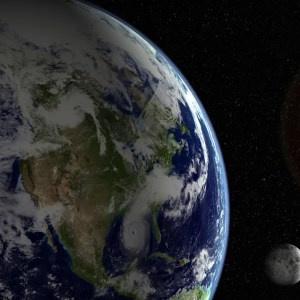Planet Earth is set to spin a bit faster on three specific days this summer, starting July 9. While this might technically shorten the day, the change is so small you won’t even notice it.
Just a tiny fraction of a second—less than the time it takes to blink—will come off the usual 24-hour day. But why does this happen?
Earth isn’t a perfect clock. Though it typically takes 24 hours, its rotation can vary by milliseconds each day. Factors like the moon’s position can impact our planet’s spin. When the moon is positioned farther from the equator, Earth tends to rotate faster.
Moreover, events like earthquakes and volcanic eruptions can also change our rotation speed. For instance, the massive 2011 earthquake in Japan made Earth spin slightly faster, shortening the day by 1.8 microseconds.
We’ve been tracking these tiny variations since the 1950s, using accurate atomic clocks. The shortest day recorded was on July 5, 2024, when Earth completed its rotation 1.66 milliseconds faster than usual.
So, when can we expect this summer’s changes? Here are the key dates:
- July 9: Day shortened by 1.30 milliseconds
- July 22: Day shortened by 1.38 milliseconds
- August 5: Day shortened by 1.51 milliseconds
Now, you might think of the winter solstice—that’s when the Northern Hemisphere has the least daylight hours in December. It’s more about sunlight than time, as it marks the longest night, not the shortest day.
Can we always count on Earth having 24 hours in a day? Surprisingly, no. Millions of years ago, Earth took about 23 hours to spin once. Scientists estimate as time goes on, days are getting longer, increasing by roughly 1.7 milliseconds each century. In about 200 million years, we could be looking at 25-hour days.
This gradual extension is crucial for life on Earth. With more daylight hours, ecosystems will adapt and evolve. Understanding these changes helps us appreciate the delicate balance of our planet.
Isn’t it fascinating? Earth’s rotation impacts everything from our daily routines to the environment we live in. So, while your summer may not feel any shorter, it’s a reminder of how dynamic our world truly is.
For more in-depth insights, consider checking out Time and Date for details on Earth’s rotations and their effects, or explore Live Science for a look at how specific events affect our planet’s rhythm.
Source link
Earth’s equator, The Earth, Earth’s rotation, milliseconds, shorter days, full rotation


